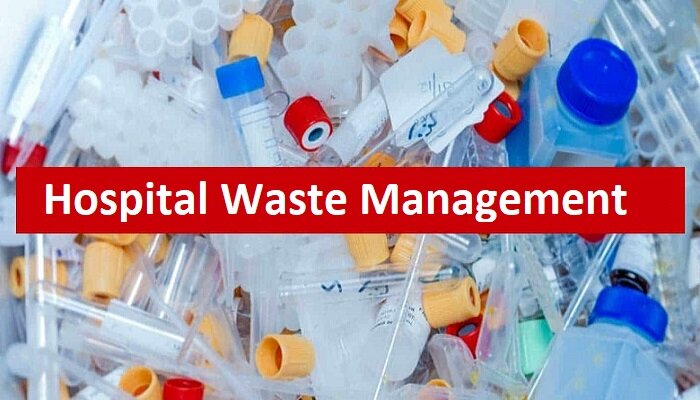Artificial intelligence (AI) is transforming waste management in hospitals by automating the segregation process. Smart bins, equipped with AI technology, can distinguish between clinical, pharmaceutical, and general waste, ensuring precise sorting in compliance with regulatory standards. This automation reduces human error and cuts down the time staff spend managing waste, allowing them to focus on patient care. Additionally, AI-driven systems can adjust storage capacity based on real-time waste levels, optimizing space and efficiency.
Leveraging Data Analytics for Resource Optimization
AI doesn’t just automate waste segregation; it also provides valuable insights into waste generation patterns. By analyzing data, hospitals can predict high waste production periods, enabling better logistics and resource allocation. This predictive capability ensures that waste management does not disrupt patient care and helps hospitals streamline operations, leading to significant cost savings. By optimizing waste-handling processes, hospitals can enhance overall efficiency and reduce operational costs.
Tackling AI Integration Challenges
Integrating AI into hospital waste management is not without its hurdles. One major challenge is the accuracy of AI systems in distinguishing between different types of waste, especially when subtle discernment is required. For instance, differentiating between various medical sharps or pharmaceutical waste categories demands sophisticated algorithms that are still under development. Additionally, AI systems rely on the quality of training data. Inaccurate or biased data can lead to sorting errors, posing compliance and safety risks.
Another significant challenge is the compatibility of AI with existing hospital infrastructures. Many hospitals use legacy systems that may not support the latest AI technologies, necessitating substantial investments in technological upgrades. Thus, hospitals need to take a balanced approach, weighing potential benefits against the challenges and costs of implementation.
Achieving Seamless System Integration
For AI to be effective in hospital waste management, it must integrate seamlessly with existing systems and workflows. This involves ensuring technological compatibility and training staff to use AI-enabled systems effectively. Proper integration allows hospitals to fully realize the benefits of AI, improving waste management processes and enhancing operational efficiency.
Moreover, integration should extend to waste disposal facilities, fostering better coordination and tracking of waste from hospitals to disposal sites. AI can streamline this process by automatically sharing data on segregated waste, facilitating efficient and compliant disposal.
Real-World Impact and Benefits
Real-world applications of AI in hospital waste management demonstrate its transformative potential. For example, a large healthcare network using AI to automate waste segregation saw a 40% reduction in non-compliance incidents and a 20% decrease in waste management costs. In another case, smart bins equipped with AI in European hospitals provided real-time waste sorting and data analytics, helping administrations improve disposal protocols and reduce environmental impact.
These examples highlight the significant benefits of AI, from operational efficiencies to substantial cost savings. They also underscore why continued innovation and thoughtful implementation are important to address the challenges of integrating AI in hospital waste management.
Financial Considerations and Long-Term Savings
Investing in AI technology for waste management may require substantial initial costs, including advanced sensors, smart bins, and complex analytics software. However, the long-term savings and operational efficiencies can outweigh these initial investments. AI-driven automation reduces the labor hours needed for manual waste sorting, cutting staffing costs and reallocating resources to more critical areas.
Moreover, the precision of AI in waste segregation reduces fines and penalties for regulatory non-compliance. Proper handling of hazardous waste mitigates contamination risks and associated healthcare costs. Hospitals can also use AI-generated data to negotiate better rates with waste disposal companies, providing clear and reliable information about the types of waste processed.
Navigating Regulatory Requirements
AI systems in hospital waste management must comply with complex healthcare regulations that govern waste segregation, handling, and disposal. Ensuring compliance involves detailed tracking and reporting of waste categories. Developers of AI technologies must collaborate with regulatory bodies to create compliant solutions that can adapt to regulatory changes.
Hospitals also need to train their staff on the regulatory implications of using AI in waste management, emphasizing compliance and safety procedures. Proper training and adherence to regulations are crucial for the successful implementation of AI technologies.
Future Innovations and Technological Advancements
The future of AI in hospital waste management looks promising, with continuous advancements in technology. Emerging machine learning algorithms capable of learning from new data can lead to more sophisticated waste segregation systems. Innovations like blockchain could enhance transparency and traceability of waste streams, offering verifiable records for regulatory agencies.
Integrating Internet of Things (IoT) devices can provide real-time monitoring and control of waste management processes, further increasing efficiency and compliance. AI has the potential to transform hospital waste management, providing significant benefits and contributing to a more sustainable healthcare ecosystem.
Conclusive Thoughts
While integrating AI into hospital waste management presents challenges, the benefits—ranging from cost savings to improved compliance—make it a worthwhile investment. Hospitals that embrace AI technologies will optimize their operations and contribute to a more sustainable and efficient healthcare system.


















